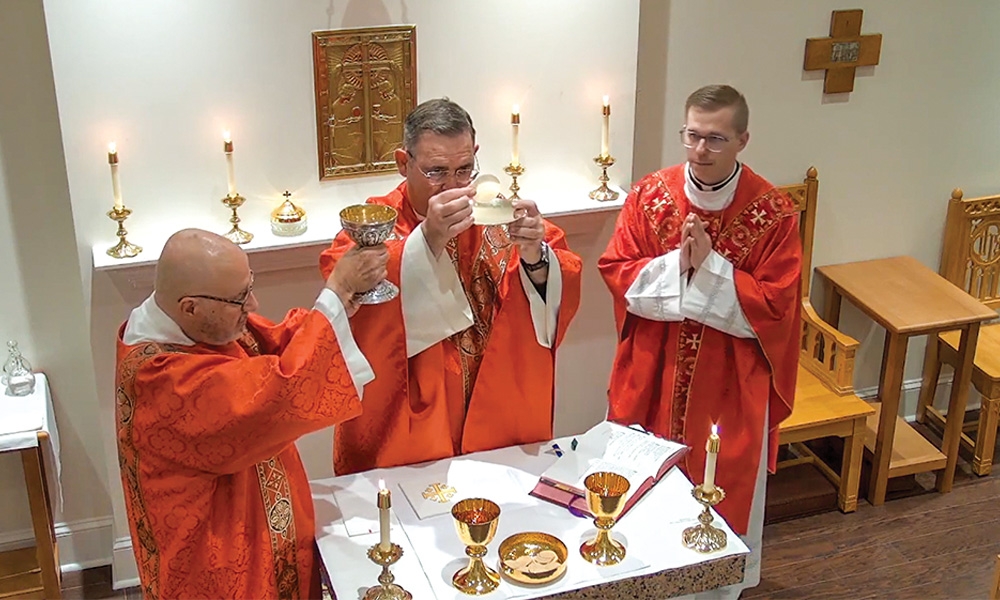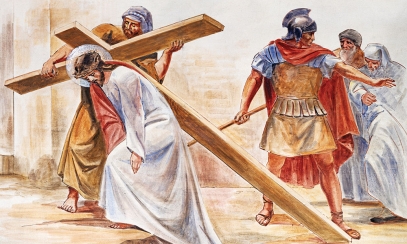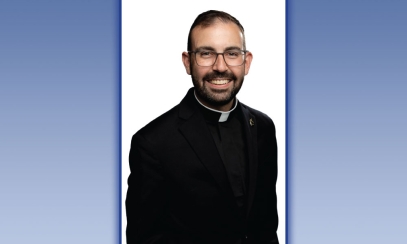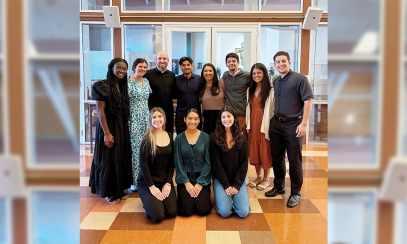
Deacons are called to serve
At the Last Supper Jesus commissions his disciples, “I give you a new commandment: love one another. As I have loved you, you also should love one another.” (Jn 13:34) This mandate has three dimensions: to testify to Jesus (Jn 15:27, 17:20), to offer the One Loaf and the One Cup (Mt 26:26-29), and to serve one another as Jesus did by “washing one another’s feet.” (Jn 13:15)
At the Last Supper Jesus commissions his disciples, “I give you a new commandment: love one another. As I have loved you, you also should love one another.” (Jn 13:34) This mandate has three dimensions: to testify to Jesus (Jn 15:27, 17:20), to offer the One Loaf and the One Cup (Mt 26:26-29), and to serve one another as Jesus did by “washing one another’s feet.” (Jn 13:15)
The bishop as the successor to the apostles carries out these three ministries of liturgy, word and service as the principal teacher, dispenser of the sacraments, and servant leader of his flock. He shares this ministry in collaboration with others.
With his priests, he sanctifies the faithful in the Mass and sacraments, he teaches the faithful in the preaching of the Word, and he serves the faithful in the ministry of governance and administration, rightly ordering the gifts of the faithful for the building up of the whole church.
With his deacons, the bishop reaches out to all in need both within in the church and in the wider community. Jesus “did not come to be served but to serve” (Mt 20:28), and so the church which exists “to carry forward the work of Christ” is at root a servant church (Gaudium et Spes, 3).
The role of the deacon
St. John Paul II said, “the service of the deacon is the church’s service sacramentalized,” and deacons are “living signs of the servanthood of his Church.” (Address to Deacons, Sept. 19, 1987) This means that, although deacons do many things, a deacon is a deacon first by who he is not what he does.
Deacons serve most visibly at Mass, doing a myriad of things that leaves the priest free to function in persona Christi as the icon of Christ the priest. Deacons also assist with baptisms, weddings and funerals. Deacons teach and preach. They counsel married couples. They visit the sick and those in need. They bring Christ visibly to those in prison and to the homeless on the street. Deacons find unmet needs and bring the church’s resources to bear on them. Deacons draw the laity into ministry and mentor them in their baptismal call to holiness.
These visible actions of the deacon are manifestations of the grace given to the church to carry out Jesus’ mandate to address the needs of people with hands-on service, persevering even when misunderstood and rejected.
Jesus said, “Where I am, there also will my servant be.” (Jn 12:26) That is where you look for deacons (the word comes from the Greek diakonos, which means servant).
Men interested in learning more about becoming a deacon are invited to attend a Project Stephen gathering. Find more information at www.austindiocese.org/project-stephen. Applications for the next diaconate class – the class of 2031 – will be accepted starting Dec. 1. Formation will begin in January 2026. For more information call the Diaconal Office at (512) 949-2459.
Deacon Rob Embry was ordained to the diaconate in 1987. He serves at St. Louis Parish in Austin and as associate director of Diaconal Formation for the Diocese of Austin.



